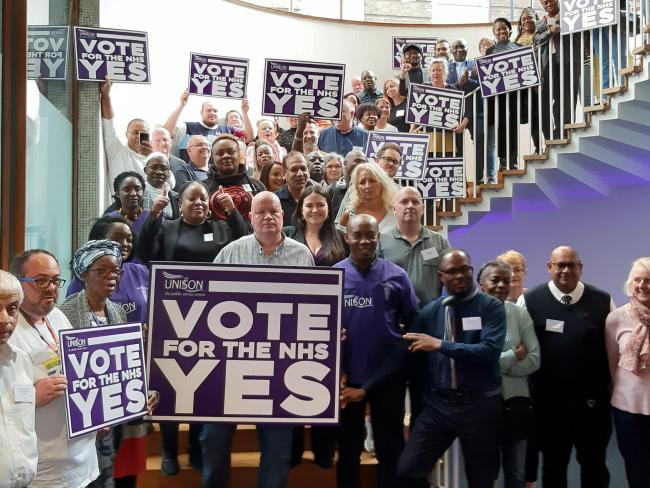
Unison members at the start of the 2022 pay ballot campaign. Photo Workers.
A historic decision was taken at the Unison Health Care Service Group Conference in Bournemouth on 18 April when members unanimously backed a motion to “call time” on the NHS Pay Review Body (PRB) system. They will now seek direct negotiations on pay.
Gordon McKay from the Unison service group executive told the conference, “The PRB was never independent, the government picked their chair and gave them their remit.”
It is a significant lesson learnt from this year’s pay dispute and one that has taken 40 years to come to fruition: previous motions calling for the dissolution of the PRB have been rejected on multiple occasions. The motion will mean that Unison will now begin to work towards a collective bargaining model across Britain.
But there are fears that this leap forward in terms of the PRB will be hampered if other aspects of joint union working are not valued. The Royal College of Nursing, which submitted a separate claim at the start of this pay dispute, is now seeking a nurses-only (indeed, an RCN-only) pay scale.
The national bargaining structure of the NHS is important, as is the achievement of the joint working of the 14 unions in this structure. And even where financial control of the NHS is devolved, as in Wales and Scotland, it is the still the reference point for pay awards.
